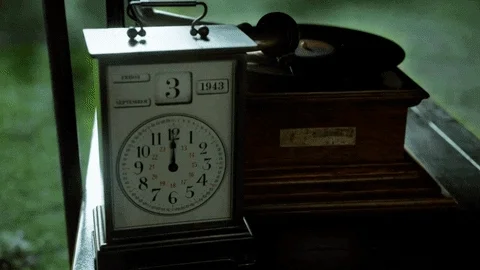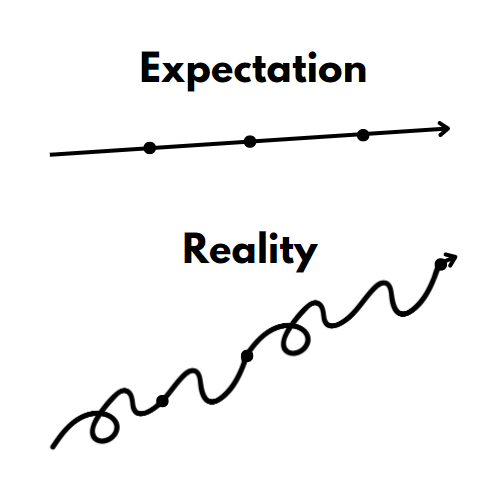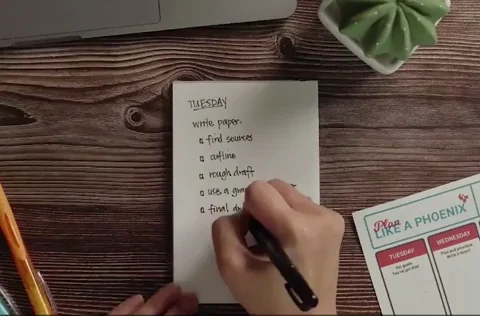Have you ever wished you could travel back in time to give yourself advice?

If I could go back, I'd offer myself advice before starting a PhD program in the humanities. With this knowledge, I would have:
Saved time
Lowered stress and anxiety
Put myself in a better position as I approach graduation

1. This is a Marathon, Not a Sprint
The mean average time to complete a PhD in the humanities is 6.8 years.

Most programs have 3 phases:
Phase 1: Coursework (1-2 years)
Phase 2: Comprehensive Exams & Dissertation Proposal (1-2 years)
Phase 3: Dissertation & Oral Defence (1-3 years)

To move through all 3 phases takes a long time and requires sustained commitment of time and energy.
2. Be Aware of the Planning Fallacy
Planning fallacy is a tendency to underestimate the time it takes to complete a task.
This makes the planning more optimistic than the reality of actually getting it done.
 Be realistic when setting goals and remember life happens while you're pursuing your PhD.
Be realistic when setting goals and remember life happens while you're pursuing your PhD.
I remember telling friends and family I would finish in 5 years. I'm nearing completion now and it has been 8 years!
3. The Imposter Syndrome is Everywhere
Imposter syndrome is a psychological phenomenon that makes you feel like a fraud despite success or achievements, and it's common in graduate school.
Especially when starting, new PhD students can feel intimated and unworthy of where they are.

A PhD program is about gradually gaining expertise, not starting as an expert.
Recognizing and talking about the imposter syndrome can help dissolve insecurities and improve confidence.

4. Know Thyself (As a Student)
Completing a PhD requires self-motivation. But not everyone gets motivated in the same way. It's important to know what kind of structure you need to thrive!
Do you get things done ahead of time or at the last minute?
Do you prefer firm deadlines or loose timelines?
Do you plan out a research project or figure it out as you go?

Before starting, I thought I excelled at loose timelines. But I now know I function best with a series of firm deadlines to motivate my progress.

5. Choose Your Supervisor Carefully
Choosing a supervisor is vital to success. They need to be on board and ready to support you and your research.
 Photo by Amy Hirschi on Unsplash
Photo by Amy Hirschi on UnsplashStart with professors' profiles and see what students think on RateMyProf. Then, email professors to meet for coffee or a Zoom call. During your conversation, consider asking questions like:
"What is your mentoring style?"
"What other PhD students have you supported?"
"What is your success rate?"
6. Keep Your Options Open
Earning a PhD in the humanities can start an academic career, but this is often not the case now. Graduates can use their skills in a variety of careers outside academia. Consider these questions:
What are some organizations you want to work for?
What are some job postings that excite you?
What skills and experience are these jobs looking for?

By keeping your options open, you can successfully translate skills gained in grad school to all kinds of jobs!

Quiz
Leslie is doing her PhD in history. She wants to find a job outside academia in the future. What should she do? Check all that apply.
Take Action

Your feedback matters to us.
This Byte helped me better understand the topic.
